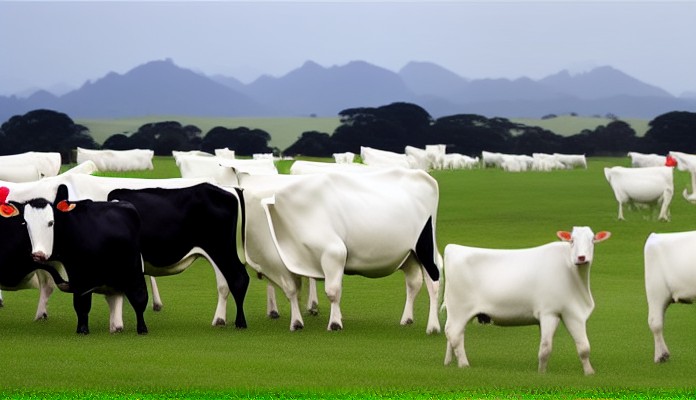New Zealand's dairy industry faces blow after Chinese government imposes safeguard duties on milk powder imports.
Politics
 New Zealand says China's safeguard duties on milk powder will force the industry to pay an additional $100 million annually.
New Zealand says China's safeguard duties on milk powder will force the industry to pay an additional $100 million annually.
In recent days, tensions between New Zealand and China have increased over the Chinese government's imposition of safeguard duties on milk powder imported into New Zealand. The move has sparked outrage among New Zealand businesses and farmers who claim that it will force them to pay an additional $100 million in tariffs annually.
The controversy surrounding these duties was further exacerbated by the fact that China has been accused of unfairly targeting New Zealand's dairy industry for its protectionist measures. Under the current tariff structure, the Chinese government is imposing 45% duties on milk powder imports from New Zealand, while imposing no duty on milk powder imports from other countries.
For New Zealand's dairy industry, this decision represents a significant blow as it has long relied heavily on export markets such as China for its growth. The country's export markets accounted for approximately 60% of its total milk production last year.
The Chinese government's actions have been widely criticized by New Zealand politicians and business leaders who see the move as a form of retaliation against New Zealand for its participation in the Trans-Pacific Partnership (TPP) trade agreement. The TPP is a free trade deal that New Zealand joined in 2016, with the aim of increasing trade and economic cooperation between the two countries and their respective trading partners.
In response to the Chinese government's actions, New Zealand's Prime Minister Jacinda Ardern has spoken out against the imposition of duties on New Zealand's milk powder exports to China, describing the move as "unfair" and "discriminatory." She has also urged the Chinese government to remove the duties and to negotiate an appropriate solution to the issue.
Meanwhile, China has denied any wrongdoing regarding the duties on milk powder imports into the country, and instead blamed New Zealand for violating World Trade Organization (WTO) rules. China's commerce minister has accused New Zealand of engaging in "mercenary protectionism" and urged the country to be more consistent in its WTO commitments.
Overall, the situation between New Zealand and China over the safeguard duties on milk powder is a complex one that requires careful consideration from all parties involved. While the Chinese government's actions may have sparked outrage among some New Zealand businesses and farmers, it is important to understand the broader context of the global trade landscape and to approach the issue with a constructive and diplomatic mindset.






